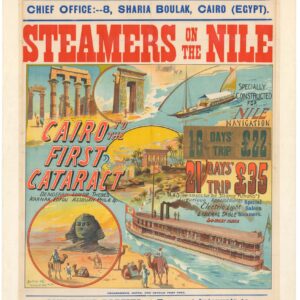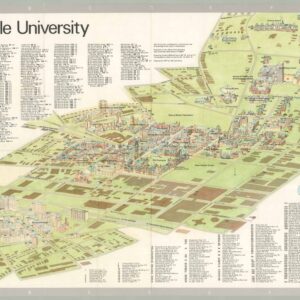Rare music sheet for the original Lincoln-Quick-Step, issued as part of Lincoln’s candidacy for president.
Lincoln Quick Step.
$1,200
In stock
Description
This wonderful piece of Americana is both an iconic piece of music from mid-19th century America and a rare and exciting part of printed Lincoln memorabilia, which depicts the presidential candidate as an American hero without his iconic beard.
The Lincoln Quick Step was a lively and popular American military march from the Civil War era. It was not limited to a single tune but constituted an umbrella term that covered a range of demonstrations by different American composers and songwriters. The Lincoln Quick Step naturally became very popular during the Civil War, where it was associated with the Union Army and named in honor of the sitting president. One of the most famous versions, composed by American songwriter Henry Clay Work, was issued in 1864.
The original version of the Lincoln Quick Step nevertheless dated back to before Lincoln’s presidency and was the brainchild of the prolific American composer Charles Grobe, who was a staunch supporter of Mr. Lincoln’s candidacy and had composed the song in his honor. It is this original edition – the first sheet music ever to use the name Lincoln Quick Step – that we offer here.
This sheet was issued in 1860 by Lee & Walker of Philadelphia. In addition to being the first in a broader repertoire of Lincoln Quick Steps, the current edition has become particularly desirable among collectors because of the lithographed portrait of a young and beardless Abraham Lincoln on the cover. This cover art was created by artist Henry Whateley (1841-1901) and printed by Thomas Sinclair, a Scottish-American lithographer who originally had emigrated to America from the Orkney Islands in the 1830s.
Framing the unusual central portrait oval are two vignettes of American life, bound together by an arabesque of American fauna and the tools typically used by frontiersmen. Floating above the main portrait, we see the iconic image of a rail-splitter, working relentlessly on the extraordinary task of uniting the country by rail. Looking closer, it is apparent that this character is Lincoln, who not only worked the hard labor of splitting rails in his youth but also championed the Union Pacific Railroad as an attorney. It was Lincoln who, on July 1, 1862, signed The Pacific Railway Act into law and thus ensured government support for the construction of the first transcontinental railroad (completed on May 10, 1869). Below the portrait is a river barge, the critical means of frontier transportation in 19th century America, and responsible for bringing so many trade goods in and out of the wilderness.
Even though this sheet music was never actually bound, the lithographed cover is both the most exposed and desirable element of this rare lot, and it has consequently been professionally reinforced to preserve it intact.
The Lincoln Quick Step has endured in American culture as a symbol of the Civil War and American unity. To this day, it is known for its catchy and spirited melody, making it a popular choice for military bands and patriotic events. It is often performed at reenactments, parades, and other historical or commemorative gatherings.
Cartographer(s):
Condition Description
Pages are separating. The cover has been professionally reinforced on three sides. Never bound.
References



